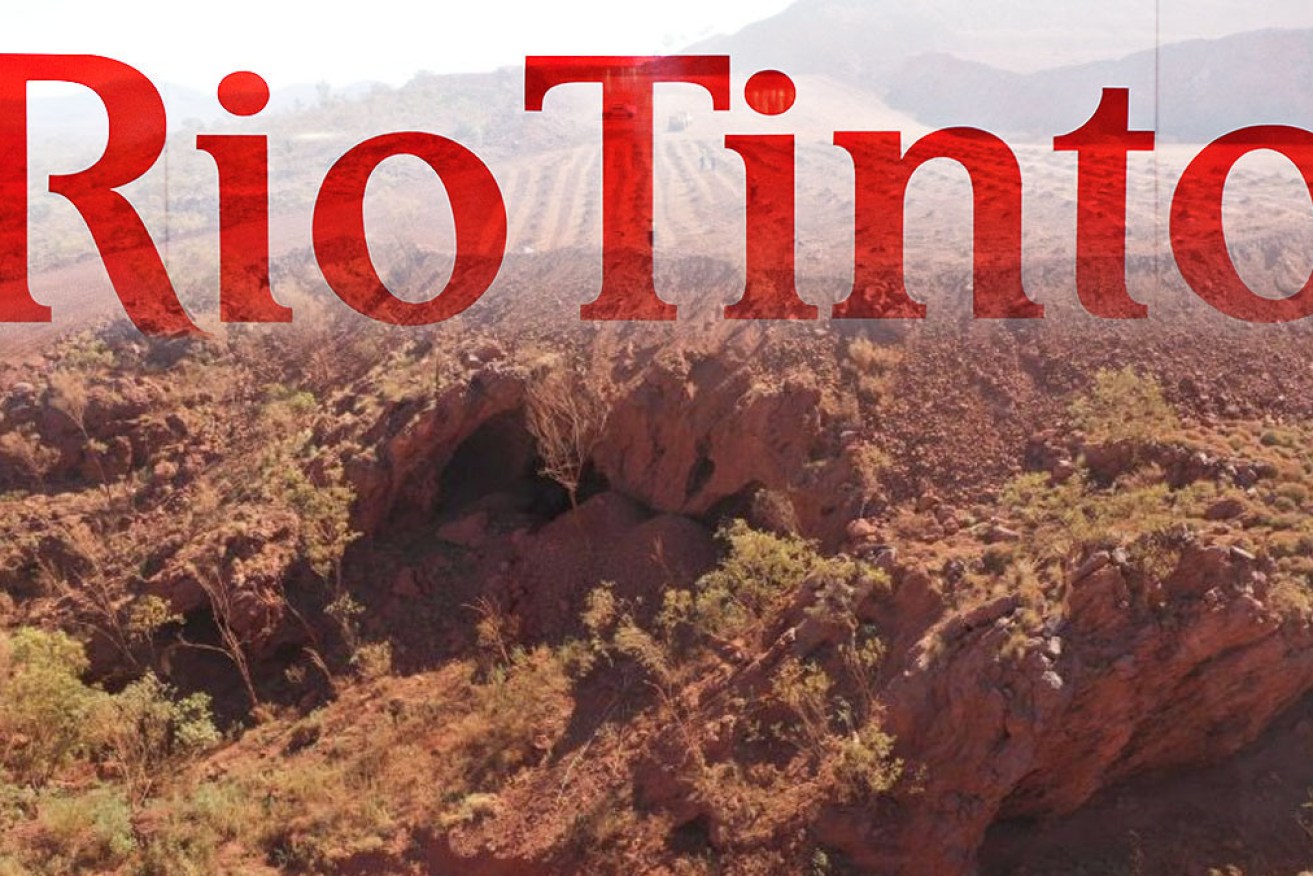‘Astounding revelation’: Rio Tinto’s Juukan Gorge explosion could have been avoided


An 'astounding revelation' from Rio Tinto's CEO has investors up in arms. Photo: The New Daily
Irate investors are demanding answers after Rio Tinto revealed it could have mined the Juukan Gorge without destroying Indigenous rock shelters pre-dating the last Ice Age.
Traditional landowners were never told the company had alternatives to the blast, which destroyed the 46,000-year-old rock shelters in June.
Rio Tinto CEO Jean-Sebastian (JS) Jacques told a Parliamentary inquiry on Friday the company developed four different options to expand its Brockman 4 iron ore mine in Western Australia back in 2012-13.
Under three of those proposed plans, the rock shelters on lands traditionally owned by the Puutu Kunti Kurrama and Pinikura people (PKKP) would have been avoided.
But the company ultimately went with a fourth option which saw the shelters destroyed in order to allow the miner to extract an additional 8 million tons of iron ore.
The extra resources commanded an estimated value of $135 million at the time, Mr Jacques told the Parliamentary inquiry.
This fourth option was the only one presented to traditional land owners.
Liberal National Party MP Warren Entsch, chair of the Joint Standing Committee, Northern Australia, said he was “immensely” bothered by the company’s failure to disclose the other options.
“We talk about the principle of free prior [and informed consent] – and I highlight ‘informed’ consent – there was an admission it was conveyed to the PKKP that there was only one option,” he said.
That really bothers me.”
The New Daily contacted the PKKP Aboriginal Corporation for comment, but did not receive a response in time for publication.
Investors respond to ‘galling’ revelations
Rio Tinto’s share price dropped 1.8 per cent in the first 15 minutes of trading after Mr Jacques’ grilling commenced.
The shares briefly fell 3.37 per cent below their opening price before recouping some of those losses to close 2.89 per cent down.
And Australian Council for Corporate Responsibility (ACCR) executive director Brynn O’Brien told The New Daily the company’s shareholders are demanding answers over Rio Tinto’s conduct.
“We’ve seen an unprecedented level of interest from the investment sector wanting to learn more about this issue,” she said.
“And in fact it’s the most interest I’ve ever seen from the investment sector on first nations rights on any issue.”
ACCR – a shareholder activist group that also has a stake in the miner – condemned Rio’s actions, noting the destruction of the rock shelters had drawn comparisons with terrorist group, the Taliban.
“It’s difficult to imagine more compelling evidence of serious corporate reputation damage than being compared to the Taliban,” Ms O’Brien said.

Protestors gathered outside Rio Tinto’s offices following the blast. Photo: AAP
The conduct of Rio Tinto chief Mr Jacques – the tenth-highest paid CEO in the country last year who netted more than $10 million – is also being questioned.
“What was most galling about these hearings is that Rio Tinto group CEO J.S Jacques apparently has no sense of his own accountability for this disaster,” Ms O’Brien said.
“He made comments to the effect of there being many people who had some accountability or responsibility in relation to this, but no single person.
“Well actually, the single person with accountability, who should be accountable for this, is the CEO – the buck stops with him.”
Mr Jacques’ remuneration – and even his role with the company – should be questioned by investors and board members in light of Friday’s “astounding revelation”, Ms O’Brien said.
“A $10 million salary must come with accountability,” she said.
Despite the controversy surrounding the Juukan Gorge blast, Rio Tinto delivered an underlying profit of $US4.8 billion ($6.73 billion) for the six months ended June 30.
While that represents a 4 per cent drop on the company’s profits from the first half of last year, it beat market expectations from the likes of UBS and Vuma by 2-4 per cent.








